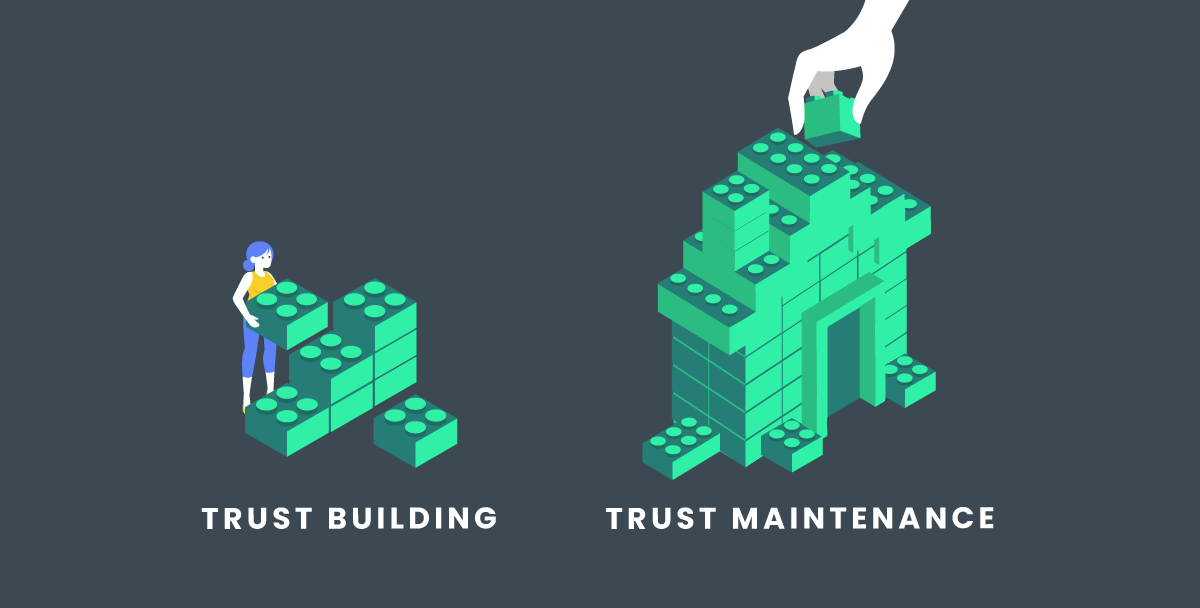Trust-building or trust-maintenance? A short guide to maintaining trust in your team

We constantly hear how important it is to build trust in a company. To achieve it, we invest a lot in various activities to establish connections between staff and build trust. All this in order to increase performance at work and receive good project results.
Looking at the development and performance of our company over the years, we have reached a point where we believe that trust-building is sometimes overestimated and what we really need is to build a system of connections that come together and coexist continuously. This is called trust -maintenance! Instead of the initial stage where a trusted team should be created, you can collaborate with a company that has already passed that stage and turned into a team of mutual trust.
When a company grows, both in terms of staff and customer requirements, changes grow with it. Changes occur in all areas of action including finance, human resources, developers, designers, etc. Some leave, others come, and a whole system of movements, shifts, and changes is created. If the focus of the company remains on building trust, then this process means investment, expense and the results can be variable, as is the trust-building process itself.
Analyzing this situation, we at Kutia turned our attention to creating a system that works even when team players change. We want the company chain to function smoothly and then when someone new joins the team, he joins this system where trust between colleagues is inevitable. Therefore, our team has recently been joined by the HR manager whose main task is to ensure that this chain of trust remains strong and stable. We are constantly trying to discover and test tactics that help us in the trust-maintenance process. So far, these are the things we want to share with you:
This is an issue we have addressed in one of our previous blogs. The bottom point is that as long as our team members finish their tasks, we shouldn’t worry about how, when, and for how long they have worked. They know best when and where they are the most efficient. Trust their guts!
- Seek for improvements, don’t just ask for them
Let’s be fair, we all want the best performance of our company! And honestly, there is always space for improvements. There might be a situation when someone can’t meet the obligations they agreed on. While it is important to talk it through and draw appropriate conclusions, there’s rarely a need to show disapproval or look for punishments. We trust each other that we all strive to deliver our best but we’re also humans that sometimes fail. It’s more important to look for improvements than to play a blame game.
- Be vulnerable
Asking for help and being vulnerable to help are two of the most important things to do in trusting teams. One of the biggest mistakes companies make is not showing trust in their team when a mistake is made. Not pointing fingers at one another and the freedom to speak openly about problems, challenges, and mistakes one should face, helps build trust. When your team sees you are open with your vulnerabilities, they will instinctively be more open with their own. A team that is not afraid to talk about their imperfections can reach the highest levels of performance.
- Take things from the middle, not the beginning
Starting things from zero points is not always a good idea. Sometimes, it is better to show new team members that they are a part of a system and not always they have to consider everything from the beginning. They need to adapt to the process and become vulnerable to ask, join and share.